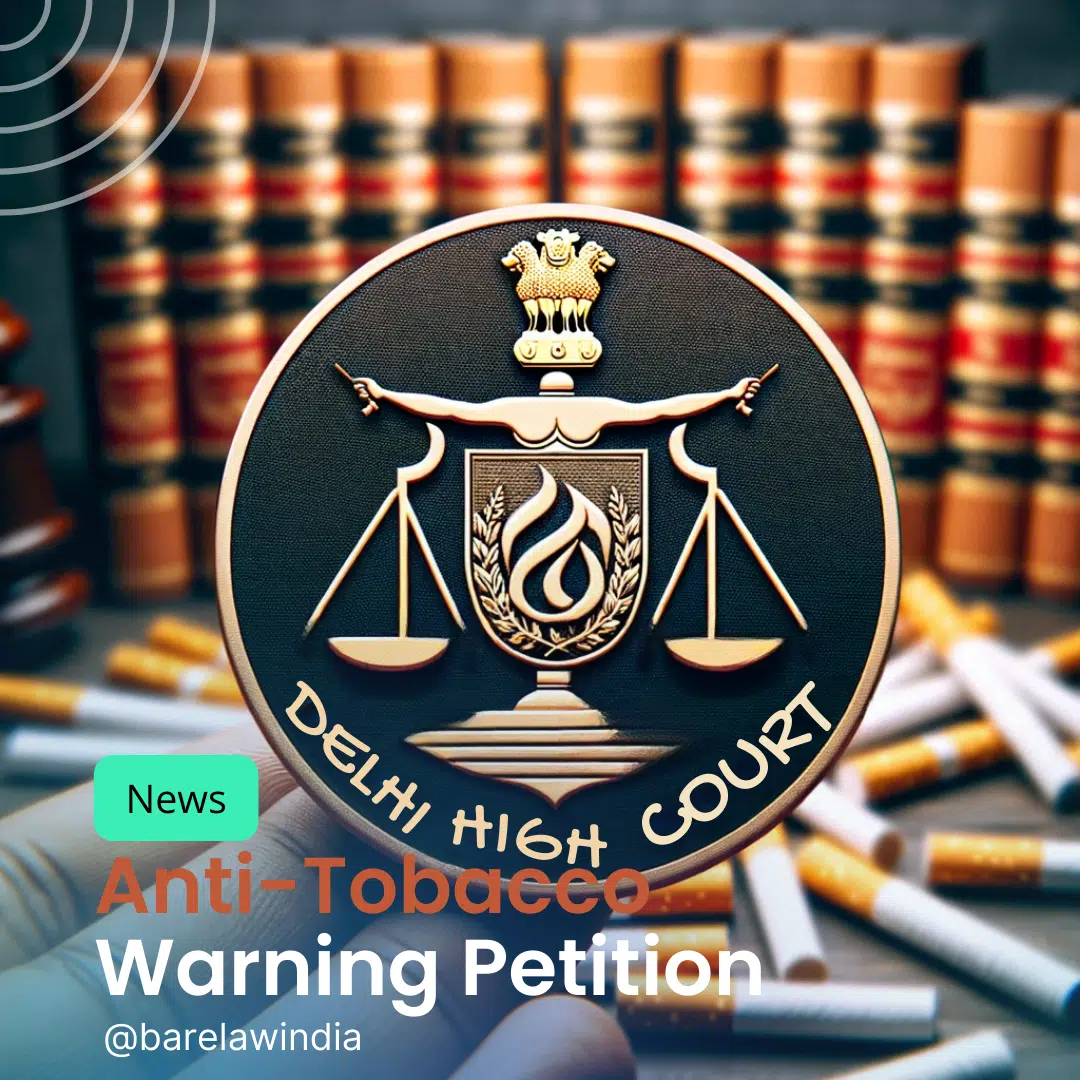
Introduction:
The Delhi High Court’s recent response to a petition challenging the display of anti-tobacco warnings in movies and TV shows has underscored the judiciary’s commitment to public health and legal responsibility. The bench, comprising Acting Chief Justice Manmohan and Justice Mini Pushkarna, demanded an affidavit of regret from the petitioner, signaling the court’s strong disapproval of such legal actions.
Background of the Case:
The petition, filed by a young lawyer named Divyam Aggarwal against the Union of India, sought to remove mandatory anti-tobacco warning messages shown during films and television broadcasts. The single-judge bench initially dismissed the petition, suspecting it was influenced by the tobacco industry lobby, aiming to hinder government efforts in raising awareness against tobacco use.
High Court’s Reaction:
The division bench, concurring with the single judge’s observations, described the petition as “absolutely misconceived.” The court expressed its need for absolute regret from the lawyer, emphasizing that a course correction was necessary. Justice Manmohan’s remarks highlighted the court’s view on the misuse of public interest litigation and the need for legal ethics, especially among young practitioners.
Court’s Emphasis on Health Awareness:
The bench also highlighted the gravity of tobacco-related health issues, mentioning the spread of cancer and the importance of public awareness. Their remarks underline the judiciary’s role in supporting public health initiatives and acknowledging the real-life impacts of such legal actions.
Response of the Lawyer:
Following the court’s stern warning about filing frivolous petitions, the lawyer agreed to submit an affidavit of regret. This move is seen as an acknowledgment of the court’s concerns and a step towards rectifying his approach to public interest litigation.
Legal and Ethical Implications:
This case sheds light on the broader implications of misusing the legal system, especially in matters of public interest and health. It serves as a reminder to the legal fraternity about the responsibilities that come with the profession and the importance of aligning legal actions with ethical considerations and societal welfare.
Conclusion:
The Delhi High Court’s handling of the anti-tobacco warning petition represents a significant stance on maintaining legal integrity and supporting public health policies. This case is a wake-up call for legal professionals, particularly the younger generation, to consider the broader impact of their actions and to uphold the sanctity of public interest litigation.



